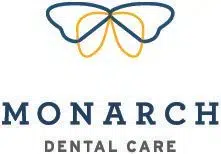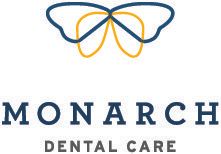
Learn How to Avoid Dental Bridge Risks and Complications
Dental bridges provide functional and aesthetic benefits, restoring your smile and improving oral health. However, like any other dental procedure, some potential risks and complications can develop.
Learn how to minimize the chances of complications from our Prairie Village, KS, dentist below. If you have any questions, or you’re looking for an appointment, contact us today by calling 913-362-4488.
Understanding the Risks and Complications
Dental bridges, though effective, are not without potential drawbacks. Here are some common risks and complications to consider:
- Gum Disease: Poor oral hygiene can lead to gum disease, which can affect the health of the teeth supporting the bridge. Regular dental checkups and meticulous oral care are essential to prevent gum disease.
- Tooth Decay: The teeth used to anchor the bridge are at risk of tooth decay. Regular brushing, flossing, and professional cleanings are crucial to maintain oral health and prevent decay.
- Bridge Failure: Dental bridges may experience wear and tear, leading to potential failure. Regular dental checkups can help identify any issues early on and prevent complications.
- Gum Recession: Gum recession can expose the roots of the teeth supporting the bridge, making them more susceptible to decay and sensitivity.
- Discomfort and Sensitivity: After the bridge is placed, you may experience discomfort and sensitivity, which should subside within a few days.
- Bite Problems: In some cases, the bridge may affect your bite, leading to discomfort and jaw pain. Dr. Clark at Monarch Dental Care in Prairie Village, KS can adjust the bite to alleviate these issues.
- Allergic Reactions: Some materials used in dental bridges may cause allergic reactions in certain individuals. It's important to discuss any allergies or sensitivities with Dr. Clark before the procedure.
Minimizing Risks and Complications
To minimize the risks and complications associated with dental bridges, choose a qualified dentist like Dr. Clark in Prairie Village, KS. He will carefully assess your oral health and determine if a dental bridge is the right solution. Additionally, following these tips can help reduce the likelihood of complications:
- Maintain Excellent Oral Hygiene: Brush your teeth twice daily, floss daily, and schedule regular dental checkups to keep your mouth healthy.
- Avoid Hard Foods: Avoid biting into hard foods that could damage the bridge or the supporting teeth.
- Wear a Mouthguard: If you grind your teeth at night, wearing a mouthguard can help protect your teeth and the bridge.
- Visit Your Dentist Regularly: Regular dental checkups allow Dr. Clark to monitor the health of your bridge and address any potential issues early on.
Considering Alternatives to Dental Bridges
While dental bridges are a viable option for replacing missing teeth, explore other alternatives as well. Dr. Clark in Prairie Village, KS can discuss the pros and cons of different options, including:
- Dental Implants: Dental implants are a long-lasting and natural-looking solution for replacing missing teeth.
- Removable Partial Dentures: Removable partial dentures are more affordable but may not be as stable or comfortable as dental bridges.
Frequently Asked Questions
Know the Possible Risks of Tooth Bridges
Don't let missing teeth affect your confidence and oral health. Schedule a consultation with Dr. Clark at Monarch Dental Care in Prairie Village, KS, to discuss your options and create a personalized treatment plan. If you live in surrounding areas like Overland Park, Leawood, or Mission Hills, KS, don't hesitate to contact us at (913) 362-4488. Your smile deserves the best care, and we're here to help you achieve it.

